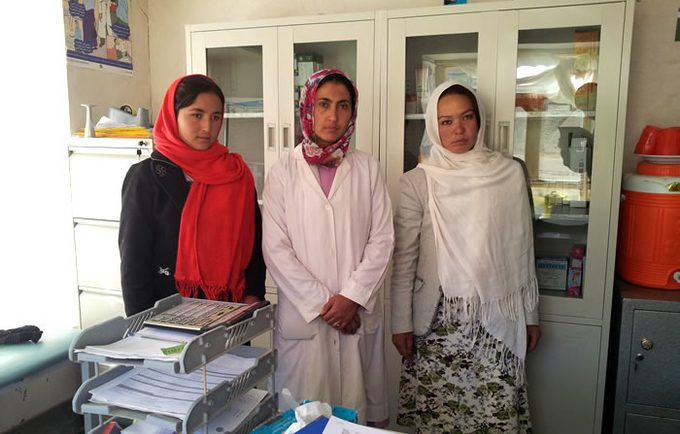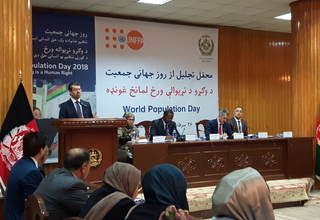"I can't thank my community enough for choosing me to attend the Community Midwifery Education School in Kabul. While studying I learned about the difficulties pregnant women face in my village. This encouraged me to study harder. Day and night I was learning. I became a book worm", recalls Hawa, a midwife in Dahani Say, a remote village in Daikundi's Bandar district.
Because of its geographical location and mountainous landscape, Daikundi belongs to one of the most remote areas in Afghanistan. For the people of this province healthcare is a luxury, especially for pregnant women, who often face a lot of challenges being forced to travel for hours to the nearest clinic in case they suffer a complex delivery.
Salma just recently experienced this. She suffered twelve hours from labor pain until her family decided to take her to a health center in Bandar. "There was no transportation available," explains Salma, "so first I thought I would have to get there by foot and spend one day walking to reach the clinic." However she was in such a severe pain that she couldn't walk. Eventually her neighbors carried her on a wooden bed.
Once they reached the center in the middle of the night there was no medical staff. "I was very disappointed so I started to cry," said Salma, "I thought I was going to lose my baby and die so I asked my neighbors to take me back home to see my other two children for the last time." While her neighbors were trying to take her back, a man came to the center and told them about the Family Health House nearby.
Salma reached the Family Health House in the middle of the night. Hawa, the community midwife, took care of her. After stabilizing the mother, Salma could deliver a beautiful child.
Thanks to the Family Health House many women like Salma can access to maternal health care during pregnancy and delivery. Each Family Health House covers between 1,500 to 4,000 people. The house is part of the community midwife's residence, ensuring access at all times of day and night for the health worker.
The Family Health Houses are intended as sustainable community-led initiatives, where candidates for Community Midwives are nominated and supported by residents. The Community Midwives receive 26 months of training at the Community Midwifery Education School in Kabul. UNFPA supports them on their education and, in collaboration with the communities, builds a basic but life-saving clinic where midwives can return once they end their studies.


